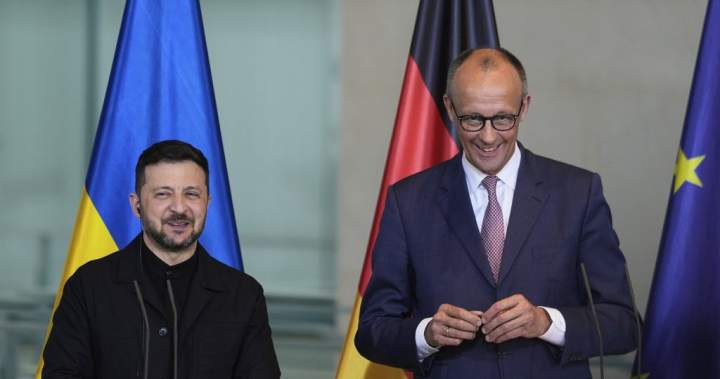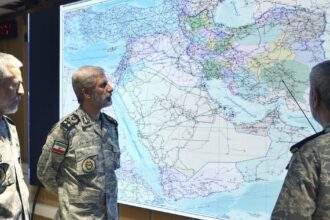In an unprecedented diplomatic maneuver, Germany has invited U.S. President-elect Donald Trump to participate in upcoming NATO discussions on Ukraine, signaling a strategic pivot in Western alliance politics as European leaders prepare for a dramatically shifting American foreign policy landscape.
German Chancellor Olaf Scholz confirmed the invitation during a press conference in Berlin yesterday, revealing that both Trump and Ukrainian President Volodymyr Zelenskyy have been asked to attend critical NATO peace negotiations scheduled for February. This invitation comes at a pivotal moment as Europe braces for potentially significant changes to transatlantic defense cooperation under Trump’s incoming administration.
“We believe direct dialogue is essential at this critical juncture,” Scholz stated. “The security architecture of Europe depends on a unified approach to the ongoing conflict in Ukraine, and we must ensure all key stakeholders are at the table.”
The timing of Germany’s invitation appears deliberately calculated, coming just weeks after Trump’s election victory and amid growing European anxiety about his previously stated skepticism toward NATO and his suggestion he could rapidly end the Ukraine conflict. European defense experts note this represents a proactive attempt by Berlin to engage Trump before he officially takes office on January 20th.
NATO Secretary General Mark Rutte expressed support for the initiative, calling it “a constructive step toward maintaining alliance cohesion during a period of transition.” According to sources within NATO headquarters in Brussels, the invitation reflects growing recognition that European security planning must adapt to Trump’s stated foreign policy priorities.
Ukrainian officials have cautiously welcomed the development. “President Zelenskyy remains committed to diplomatic solutions that preserve Ukraine’s territorial integrity and sovereignty,” said a spokesperson from Kyiv. However, Ukrainian diplomats have privately expressed concern about potential peace terms that might emerge from negotiations involving Trump, who has criticized the scale of American military aid to Ukraine.
The German invitation follows intensive diplomatic consultations among key European capitals. French President Emmanuel Macron and British Prime Minister Keir Starmer reportedly coordinated closely with Scholz on the approach, reflecting a unified European effort to establish early engagement with the incoming Trump administration.
Financial markets have responded with guarded optimism to the news, with European defense stocks showing modest gains as investors assess potential shifts in NATO defense spending priorities. Economic analysts from major European banks suggest the talks could provide clarity on future Western security commitments that have significant implications for defense industry investments.
The Kremlin has maintained official silence on the German invitation, though Russian state media has characterized it as “a recognition of reality” regarding Trump’s influence on the conflict’s resolution. Moscow continues to insist that any settlement must acknowledge what it terms “new territorial realities” in eastern Ukraine.
As European capitals prepare for a potential reconfiguration of the transatlantic security relationship, this invitation represents Germany’s attempt to assert leadership in navigating what many analysts describe as the most significant shift in NATO’s strategic orientation in decades. The question now facing Western allies is whether this diplomatic initiative can bridge the growing divide between European security concerns and Trump’s “America First” approach to global affairs.
Will this German-led diplomatic outreach succeed in preserving NATO unity, or are we witnessing the beginning of a fundamental realignment in how Western democracies approach collective security in the face of authoritarian challenges?


















